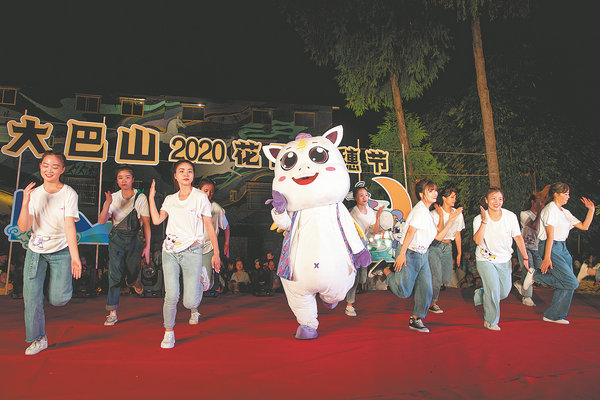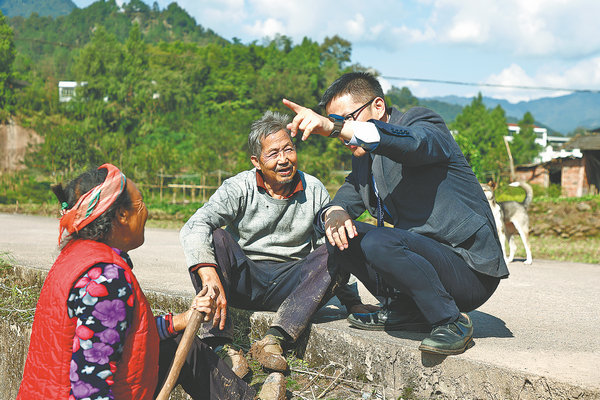Homemade renaissance


The house has also been divided into zones, comprising a gallery, dining area and kitchen, artists' workshop, foyer and suite.
"We've created an exhibition that encompasses the local landscape, culture and folk customs, and showcases the development trends of rural cultural creativity both at home and abroad," Xiang says.
The gallery is open to local villagers and travelers for free.
It aims to display the long-term plan for rural vitalization development and encourage related parties to contribute to it, Xiang says.
The facility has 40 guest rooms and offers free accommodation for talent who can help with the development of the village.
Xiang says he and his brother want the house to play a role in fostering a community of international makers.

The artists' workshop is to serve as a creative space for them, so their work can also be applied to boost the village development, he says.
"Ultimately, we'd like to combine local traditions with the modern, creating a cultural life with distinctive local style and cultivating some micro businesses, such as promoting local honey, liquor, handmade crafts, and delicacies under a cultural brand," he adds.
Ever since its opening, various events have drawn artists, experts and volunteers to the village.
At the Da Bashan Fringe Festival that was staged in the village in August 2019, well-known photographers were invited to record the scenery and culture in Baima, while young scholars shared their views on future rural development.

































